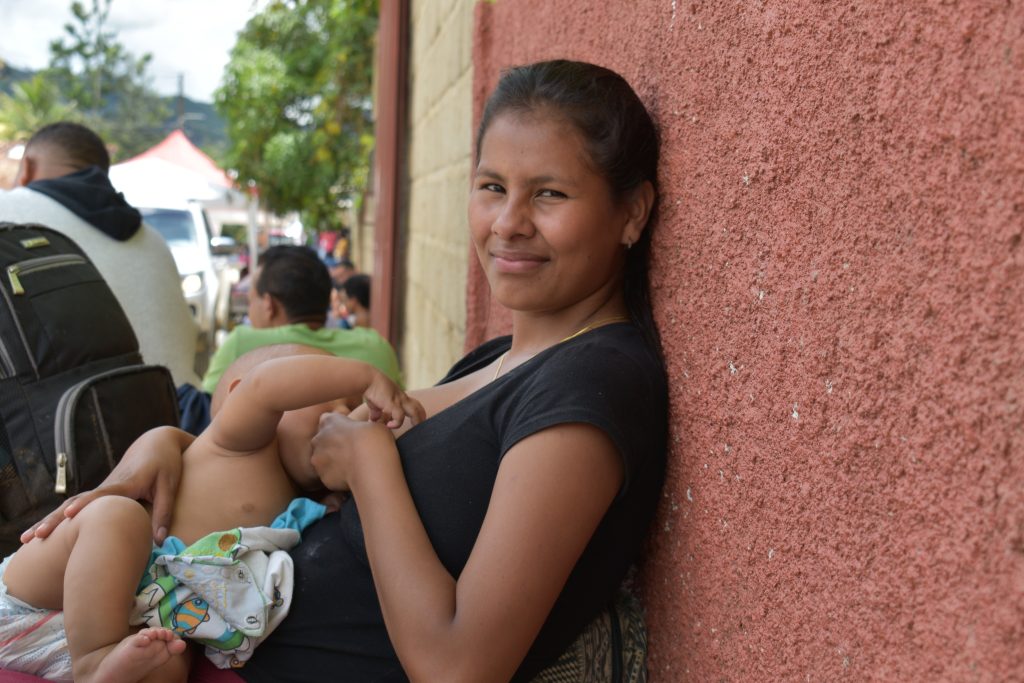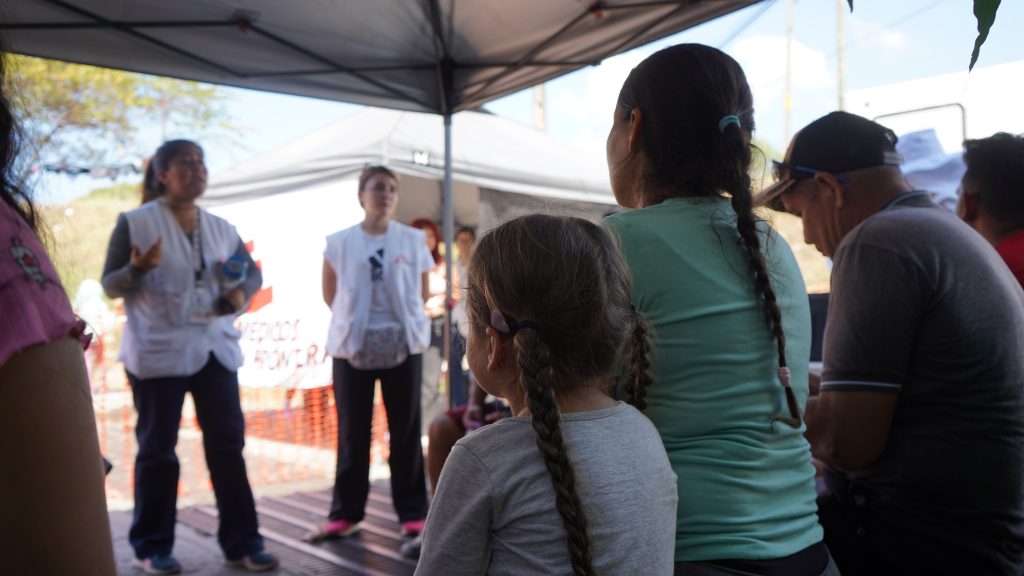“I’ve breastfed him throughout the entire migration route,” says María*, a 34-year-old Venezuelan mother traveling with her two children. Their journey began in Peru, where her youngest son was born two years ago, and continued through Ecuador, Colombia, Panama, Costa Rica, Nicaragua, Honduras, Guatemala, and Mexico. Maria is now a patient at the Doctors Without Borders/Médecins Sans Frontières (MSF) Comprehensive Care Center for Victims of Extreme Violence (CAI, in Spanish) in Mexico, which offers specialized medical and mental health care.
Historically, the Latin American migration corridor has been one of the busiest and most violent in the world. This year, following a series of executive measures implemented by U.S. President Donald Trump and other regional governments, migration policies changed drastically: main asylum pathways were shut down and security along the Mexican border was reinforced. As a result, there have been historic drops in migration flows, leaving thousands of people stranded in various parts of Mexico and Central America.
These policies have increased the risks for migrants, who are forced to use increasingly dangerous routes and methods in search of refuge, or end up trapped in unsafe locations where they are at higher risk of kidnapping, extortion, and sexual violence.
Between January 2024 and May 2025, MSF teams carried out more than 90,000 primary health consultations and 11,850 sexual and reproductive health consultations in migration and displacement-related projects in Panama, Honduras, Guatemala, and Mexico. Over the years our teams have witnessed a growing trend: more and more women traveling alone or with their young children, many of them breastfeeding.
Difficult conditions inhibit breastfeeding
According to the World Health Organization (WHO), improving global breastfeeding rates could save the lives of more than 820,000 children each year. This figure is especially relevant in extremely vulnerable contexts like migration.
However, the harsh conditions of the migration route—including limited access to clean water, lack of nutritious food for lactating mothers, absence of safe and private spaces, constant stress that can inhibit milk production, inadequate health care services, and lack of emotional support—all create a web of obstacles that directly affect many women’s ability to breastfeed adequately.
Her 18-month-old son, Javerson Alexandro, was born in Peru, but they began traveling north when he was just six months old. “Along the way, my baby became malnourished because he didn’t eat much. He always wants to be on the breast, and people say it’s not doing anything for him anymore, but I’ve tried to wean him, and I can’t.”
“I feel bad because I’m far from my country and we feel alone—it’s not the same as having the support of my mother and siblings,” Yolady reflects. For her, breastfeeding is also a way to preserve cultural traditions amid displacement.
Jocelyn, a migrant mother from Guatemala, shares a similar experience: “I’ve had trouble breastfeeding my baby because he has a big appetite—he nurses and nurses, but he’s still hungry until I give him a bottle and then he settles. I have another daughter who’s already 12, but with him it’s been harder. Sometimes I wonder why my milk isn’t enough for him.”

Protecting the bond and creating a safe space
In the Latin American migration corridor, breastfeeding mothers carry multiple invisible burdens: the emotional distress of leaving their homes, the constant fear for their safety, guilt over not being able to provide better conditions for their children, and the loneliness of parenting without a support network.
Many breastfeeding mothers choose to continue precisely because the journey is so difficult—because when everything else fails and all systems become hostile, breastfeeding may be the only constant in an uncertain world.
“I had complications during childbirth—his umbilical cord got wrapped around his neck, and his heart stopped beating,” said Jocelyn. “He was born at eight months, and it happened early because of an infection I had. But thankfully, everything’s okay now. I’m overly protective—after all I’ve suffered, to lose him now? No way. I feel so happy and grateful for my baby.” Jocelyn received pre- and postnatal care at MSF’s project in Matamoros, Mexico.

Limited access to prenatal care
MSF has also been distributing postpartum kits to breastfeeding mothers. “We provide supplies such as diapers, umbilical cord clamps, medications, and saline solutions. We offer breastfeeding education and carry out postnatal follow-up,” Núñez adds.
MSF urges the authorities along the Latin American migration corridor to ensure safe migration routes and dignified spaces that allow mothers to breastfeed in safe and welcoming conditions. Breastfeeding is essential for children’s nutrition, immune protection, and emotional development. Guaranteeing access to nutritious food for mothers, clean water, health care, and safe places to rest is vital to protect the health and well-being of the most vulnerable migrant families.
*Name has been changed to protect her identity.












